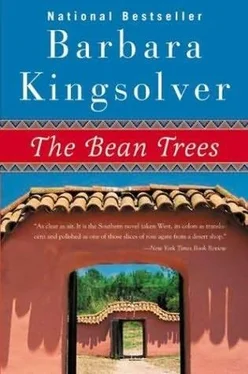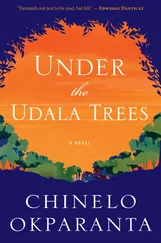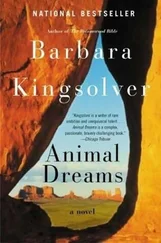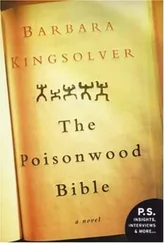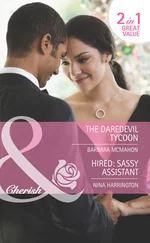“I didn’t really think she’d turn out to be sick, or anything like that. She’s basically in good shape,” I said.
“I wouldn’t expect to turn up anything clinically. She appears to be a healthy two-year-old.” He looked at his clipboard.
“The reason I brought her in is I’m concerned about some stuff that happened to her awhile ago. She wasn’t taken care of very well.” Dr. Pelinowsky looked at me, clicking his ballpoint pen.
“I’m a foster parent,” I said, and then he raised his eyebrows and nodded. It was a miracle, this new word that satisfied everyone.
“You’re saying that she was subjected to deprivation or abuse in the biological parents’ home,” he said. His main technique seemed to be telling you what you’d just said.
‘Yes. I think she was abused, and that she was,” I didn’t know how to put this. “That she was molested. In a sexual way.”
Dr. Pelinowsky took in this information without appearing to notice. He was scribbling something on the so-called encounter form. I waited until he finished, thinking that I was going to have to say it again, but he said, “I’ll give her a complete exam, but again I wouldn’t expect to turn up anything now. This child has been in your care for five months?”
“More or less,” I said. ‘Yes.”
While he examined her he explained about abrasions and contusions and the healing process. I thought of how I’d handled Jolene Shanks exactly this way, as calm as breakfast toast, while her dead husband lay ten feet away under a sheet. “After this amount of time we might see behavioral evidence,” Dr. P. said, “but there is no residual physical damage.” He finished scribbling on the form and decided it would be a good idea to do a skeletal survey, and that sometime soon we ought to get her immunizations up to date.
I was curious to see the x-ray room, which was down a hall in another part of the office. Everything was large and clean, and they had a machine that turned out the x-rays instantly like a Polaroid camera. I don’t believe Dr. Pelinowsky really understood how lucky he was. I used to spend entire afternoons in a little darkroom developing those things, sopping the stiff plastic sheets through one and another basin of liquid, then hanging them up on a line with tiny green clothespins. I used to tell Mama it was nothing more than glorified laundry.
We had to wait awhile to see him again, while he saw another patient and then read Turtle’s x-rays. I hung around asking the technician questions and showing Turtle where the x-rays came out, though machines weren’t really her line. She had one of her old wrestling holds on my shoulder.
When we were called back to Dr. Pelinowsky’s office again he looked just ever so slightly shaken up. “What is it?” I asked him. All I could think of was brain tumors, I suppose from hanging around Lou Ann, who had learned all she knew about medicine from General Hospital .
He laid some of the x-rays against the window. Dr. Pelinowsky’s office window looked out onto a garden full of round stones and cactus. In the dark negatives I could see Turtle’s thin white bones and her skull, and it gave me the same chill Lou Ann must have felt to see her living mother’s name carved on a gravestone. I shivered inside my skin.
“These are healed fractures, some of them compound,” he said, pointing with his silver pen. He moved carefully through the arm and leg bones and then to the hands, which he said were an excellent index of age. On the basis of height and weight he’d assumed she was around twenty-four months, he said, but the development of cartilage in the carpals and metacarpals indicated that she was closer to three.
“Three years?”
“Yes.” He seemed almost undecided about telling me this. “Sometimes in an environment of physical or emotional deprivation a child will simply stop growing, although certain internal maturation does continue. It’s a condition we call failure to thrive.”
“But she’s thriving now. I ought to know, I buy her clothes.”
“Well, yes, of course. The condition is completely reversible.”
“Of course,” I said.
He put up more of the x-rays in the window, saying things like “spiral fibular fracture here” and “excellent healing” and “some contraindications for psycho-motor development.” I couldn’t really listen. I looked through the bones to the garden on the other side. There was a cactus with bushy arms and a coat of yellow spines as thick as fur. A bird had built her nest in it. In and out she flew among the horrible spiny branches, never once hesitating. You just couldn’t imagine how she’d made a home in there.
Mattie had given me the whole day off, so I had arranged to meet Lou Ann at the zoo after Turtle’s appointment. We took the bus. Mattie and I hadn’t gotten around to fixing the ignition on my car, so starting it up was a production I saved for special occasions.
On the way over I tried to erase the words “failure to thrive” from my mind. I prepared myself, instead, for the experience of being with Lou Ann and the kids in a brand-new set of hazards. There would be stories of elephants going berserk and trampling their keepers; of children’s little hands snapped off and swallowed whole by who knows what seemingly innocent animal. When I walked up to the gate and saw her standing there with tears streaming down her face, I automatically checked Dwayne Ray in his stroller to see if any of his parts were missing.
People were having to detour around her to get through the turnstile, so I led her to one side. She sobbed and talked at the same time.
“He says he’s going to join up with any rodeo that will take a one-legged clown, which I know isn’t right because the clown’s the hardest job, they jump around and distract them so they won’t tromple on the cowboys’ heads.”
I was confused. Was there an elephant somewhere in this story? “Lou Ann, honey, you’re not making sense. Do you want to go home?”
She shook her head.
“Then should we go on into the zoo?”
She nodded. I managed to get everybody through the turnstile and settled on a bench in the shade between the duck pond and the giant tortoises. The sound of water trickling over a little waterfall into the duck pond made it seem cool. I tried to get the kids distracted long enough for Lou Ann to tell me what was up.
“Look, Turtle, look at those old big turtles,” I said. The words “childhood identity crisis” from one of Lou Ann’s magazines sprang to mind, but Turtle seemed far more interested in the nibbled fruit halves strewn around their pen. “Apple,” she said. She seemed recovered from her doctor’s visit.
“He said something about the Colorado-Montana circuit, which I don’t even know what that means, only that he’s leaving town. And he said he might not be sending any checks for a while until he’d got on his feet. He actually said on his foot, can you believe that? The way Angel sees himself, it’s like he’s an artificial leg with a person attached.”
A woman on a nearby bench stopped reading and tilted her head back a little, the way people do when they want to overhear your conversation. She had on white sneakers, white shorts, and a visor. It looked as if she must have been on her way to a country club to play tennis before some wrongful bus change landed her here.
“It’s her husband that’s the problem,” I told the woman. “He’s a former rodeo man.”
“Taylor!” Lou Ann whispered, but the woman ignored us and took a drag from her cigarette, which she balanced beside her on the front edge of the bench. She shook out her newspaper and folded back the front page. It showed a large color picture of Liz Taylor with a black man in a silver vest and no shirt, and there was a huge block headline that said, WORLD’S YOUNGEST MOM-TO-BE: INFANT PREGNANT AT BIRTH. Apparently the headline wasn’t related to the picture.
Читать дальше
